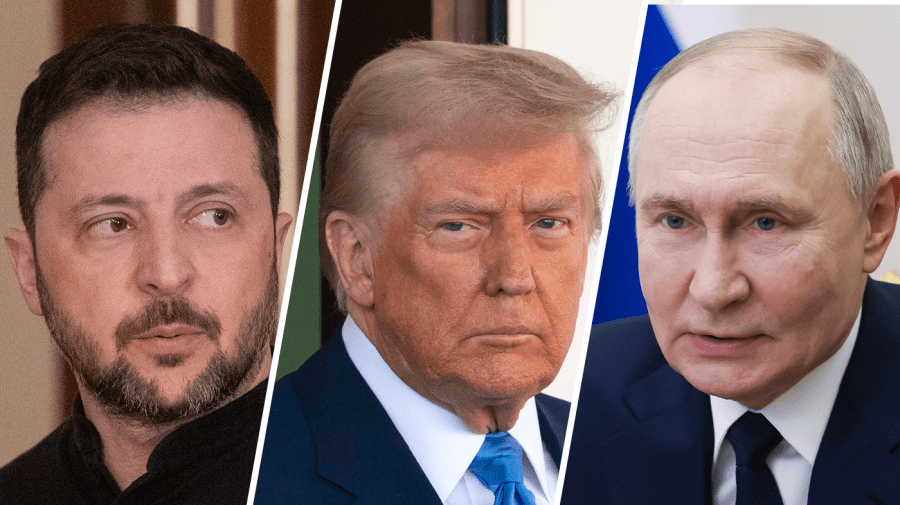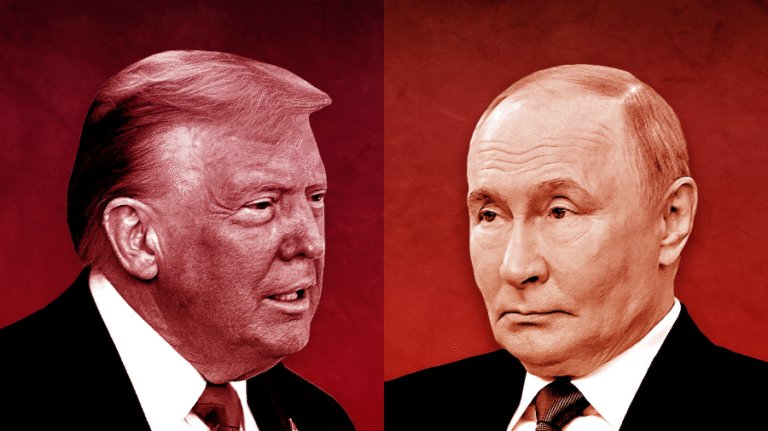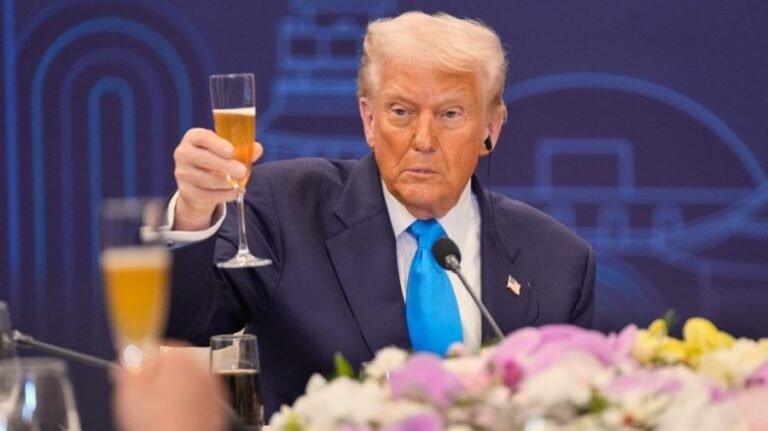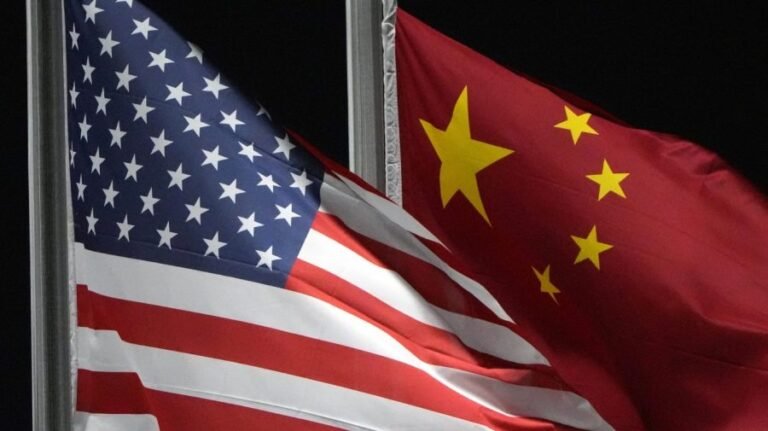
Several times over the last two weeks, President Trump has reversed his Ukraine policy, veering wildly between his default position of flattering and making concessions to Vladimir Putin to pressuring him for some flexibility on a ceasefire.
Trump remonstrated again with Ukrainian President Volodymyr Zelensky for refusing to sacrifice Ukraine’s sovereignty (after suggesting he could eject Russia from all of Ukraine), and finally ended by calling off another ill-advised summit meeting with Putin, imposing long-delayed sanctions on Russia’s two largest oil production companies.
Trump may not appreciate the comparison, but his erratic policy shifts partially mirror former President Biden’s own vacillations on the proper response to Putin’s aggression.
Biden said at first he would accept “a minor incursion” by Russia and rejected a no-fly zone for fear of triggering “World War III.” He vetoed use of modern U.S. and German tanks and other Western weapons systems, only to reverse himself later. He hamstrung Ukraine’s ability to strike targets deep inside Russia, all while defining the conflict as an existential struggle for the peace of Europe and preservation of the international order.
Taken together, as Putin and his allies in Beijing, Pyongyang and Tehran surely do, the series of Biden and Trump hesitations and tactical fluctuations convey a sense of U.S. strategic flailing and confusion. And that is just one phase of what could well become a three- or four-front war. Trump needs to take action now to prevent that nightmare scenario.
Trump must recognize that the war in Ukraine is not a mere personality clash between two men who “hate each other” but the greatest outbreak of cross-border aggression in Europe since World War II. He must know that it was started (and has continued) only because of Russia’s ongoing invasion and war crimes, and that other hostile powers are part of the anti-Western offensive.
Yes, the conflict started during the weak Obama-Biden and Biden-Harris national security terms, but it is festering under Trump-Vance and potentially spreading. Trump can change the dynamic if he finally unleashes Ukraine and empowers it to do what he said two weeks ago is a realistic possibility: drive the Russian invaders out.
Ostensibly, Trump would not be doing this out of compassion for Ukraine’s many victims, or because of moral outrage at Putin’s massive violations of international law and norms. More likely, it will reflect his disenchantment with Putin’s once-vaunted reputation as a strongman who knows how to get his way and is ruthlessly efficient at doing it.
Trump has gone from calling Putin “genius” to labeling him last week as a “paper tiger.” The way Trump describes Russia’s present difficulties in Ukraine — “They were expected to win it in three days,” he said last month at the United Nations’ General Assembly — sounds very much as if he is disappointed that Russia did not make as short work of its 2022 invasion as it had in Eastern Ukraine and Crimea in 2014. It may be that he is now seeing Putin as an inevitable loser — in Trump’s eyes, the worst thing that could be said about a leader.
If we are witnessing the emergence of a new Trump, or at least a new Trump Ukraine policy, the first thing he should do is send the Tomahawks he dangled before Ukraine for a few tantalizing days until Putin, again, talked him out of it.
Next, he should persuade America’s NATO allies to utilize the frozen Russian assets to purchase additional Tomahawks and other advanced weapons systems to impose an increasingly unbearable cost on Russia for continuing the war. China should also bear a cost through increased sanctions for supporting Russia’s aggression.
Trump should also deliver a public ultimatum to Putin: unless he agrees quickly to end the war and withdraw completely from Ukraine, the U.S. will take a more active and direct involvement on Ukraine’s side, and will undertake a concerted effort to persuade NATO to admit Ukraine as a full member.
These developments would amount to a military and political defeat for Putin. To make it as complete and as meaningful on a global scale as the unconditional surrender of Japan and Germany that ended World War II, Trump should inform the Russian people that if they choose to rid themselves of the Putin regime, the United States stands ready, willing and able to lead the West in supporting the effort through overt and covert means.
The offer would also send a message to China, Iran and North Korea that their days of terrorizing their neighbors and their own populations are rapidly nearing an end. Such an outcome would surely justify multiple Nobel prizes for Trump — one for each year one of the four world tyrants is peacefully toppled.
Joseph Bosco served as China country director for the secretary of Defense from 2005 to 2006 and as Asia-Pacific director of humanitarian assistance and disaster relief from 2009 to 2010. He is a nonresident fellow at the Institute for Corean-American Studies, a member of the advisory board of the Global Taiwan Institute and member of the advisory board of The Vandenberg Coalition.


